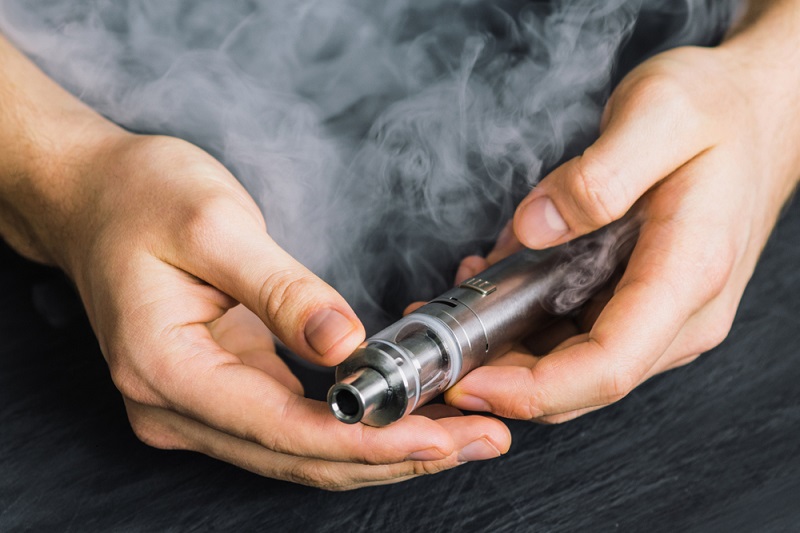Man's Vape Pen Explodes, Giving Him Third-Degree Burns
"I was pretty much engulfed in flames," the man said.

Get the world’s most fascinating discoveries delivered straight to your inbox.
You are now subscribed
Your newsletter sign-up was successful
Want to add more newsletters?

Delivered Daily
Daily Newsletter
Sign up for the latest discoveries, groundbreaking research and fascinating breakthroughs that impact you and the wider world direct to your inbox.

Once a week
Life's Little Mysteries
Feed your curiosity with an exclusive mystery every week, solved with science and delivered direct to your inbox before it's seen anywhere else.

Once a week
How It Works
Sign up to our free science & technology newsletter for your weekly fix of fascinating articles, quick quizzes, amazing images, and more

Delivered daily
Space.com Newsletter
Breaking space news, the latest updates on rocket launches, skywatching events and more!

Once a month
Watch This Space
Sign up to our monthly entertainment newsletter to keep up with all our coverage of the latest sci-fi and space movies, tv shows, games and books.

Once a week
Night Sky This Week
Discover this week's must-see night sky events, moon phases, and stunning astrophotos. Sign up for our skywatching newsletter and explore the universe with us!
Join the club
Get full access to premium articles, exclusive features and a growing list of member rewards.
A young man in the United Kingdom developed serious burns after his vape pen exploded in his pocket, according to news reports.
The man, 24-year-old Will Hawksworth, was driving home from the store when the batteries in his vape pen (also known as an e-cigarette) apparently exploded and set his jacket on fire, according to Fox News.
"By the time I stopped [the car], I was pretty much engulfed in flames," Hawksworth said.
Hawksworth's car went up in flames while he and his girlfriend waited nearby for help. When Hawksworth reached the hospital, he was diagnosed with second- and third-degree burns on his chest and abdomen.
E-cigarette explosions appear to be rare, but they are very dangerous, according to the U.S. Food and Drug Administration (FDA). The exact cause of these explosions isn't clear, but some evidence suggests that issues with the devices' batteries may play a role.
To help prevent these explosions, the FDA recommends that users avoid charging their e-cigarette overnight or leaving the device unattended while charging; avoid using cellphone or tablet chargers with the devices; replace vape pen batteries if they get damaged or wet; and protect the device from extreme hot or cold temperatures, such as by not leaving it in direct sunlight or in a cold or hot car for long periods.
Get the world’s most fascinating discoveries delivered straight to your inbox.
Now, months after the explosion, Hawksworth says the skin on his chest tends to become irritated and turn bright red when exposed to heat. But "it could have ended so much worse. I feel lucky to be alive," he said.
Hawksworth started vaping when he was 19, but he doesn't plan to continue. "'ll never go near a vape pen ever again. They are lethal," he said.
In June, doctors reported the case of a teenage boy who was seriously injured when an e-cigarette exploded in his mouth, breaking his jaw.
- 27 Oddest Medical Case Reports
- 9 Odd Ways Your Tech Devices May Injure You
- 12 Amazing Images in Medicine
Originally published on Live Science.

Rachael is a Live Science contributor, and was a former channel editor and senior writer for Live Science between 2010 and 2022. She has a master's degree in journalism from New York University's Science, Health and Environmental Reporting Program. She also holds a B.S. in molecular biology and an M.S. in biology from the University of California, San Diego. Her work has appeared in Scienceline, The Washington Post and Scientific American.
 Live Science Plus
Live Science Plus










